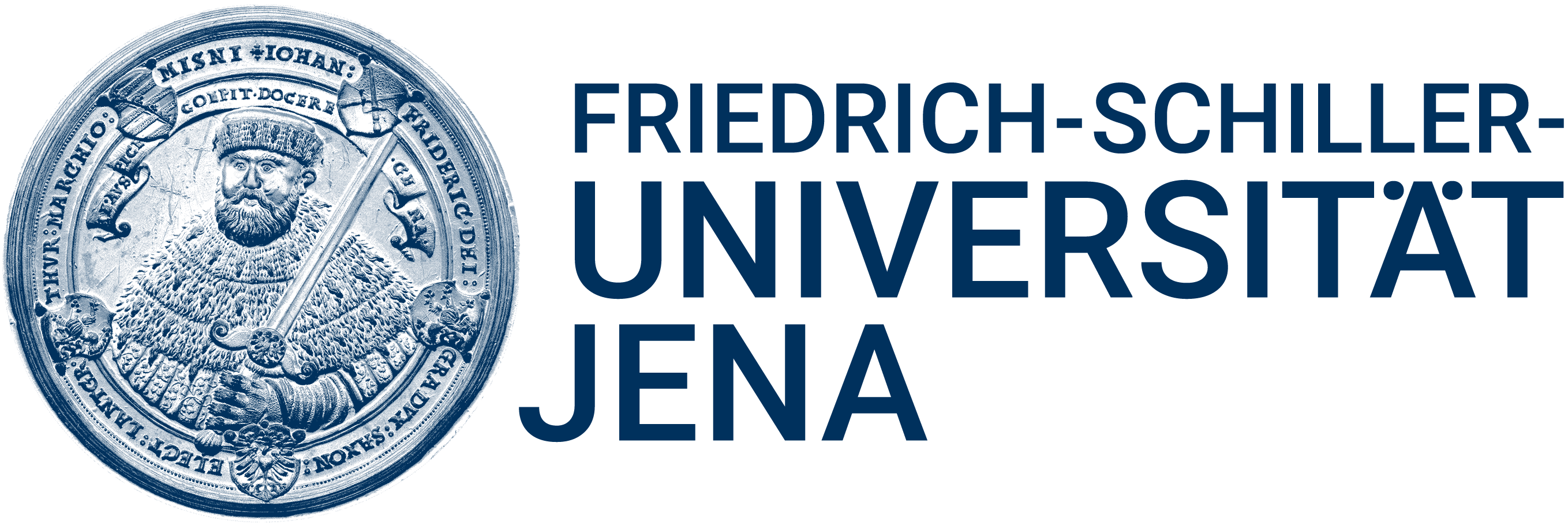Job advertisement
Vacancy ID: 239/2025
Closing date: 2025-10-21



The Friedrich Schiller University Jena is a dynamic and innovation-driven university centrally located in Germany. With a broad range of disciplines, it shapes the future through excellent research and teaching. Its scientific excellence is reflected in the profile areas Light – Life – Liberty, which provide pioneering insights and sustainable solutions for the society of tomorrow. Through close collaborations with leading research institutions, innovative companies, and renowned cultural organizations, it advances interdisciplinary developments. With around 17,000 students and approximately 10,000 employees, it defines Jena as a vibrant, internationally connected city of science and innovation.
The Cluster of Excellence “Balance of the Microverse” studies the fundamental principles underlying microbial community interactions and functions in diverse habitats, ranging from oceans and groundwater to plants and human hosts. We integrate insights across ecological and medical fields to enhance our understanding of microbial balance from the molecular to the ecosystem level. We develop tools and detection technologies to shape microbiome dynamics for environmental and human health benefits. The affiliated early career program of the Jena School for Microbial Communication offers an ambitious, structured and interdisciplinary post-graduate training based on top-level fundamental research.
The research group of Prof. Dr. Maria Mittag at the Cluster of Excellence “Balance of the Microverse” invites applications for a
Doctoral Researcher in Signal Detection and Modification in Algal-Bacterial Interactions
commencing on January 1, 2026, or upon agreement. We offer a part-time position (65%, fixed-term position for 3.5 years) at the Matthias Schleiden Institute of Genetics, Bioinformatics and Molecular Botany.
Algae and bacteria coevolved for hundreds of millions of years resulting in interactions that are shaped through exchanges of chemical mediators. Here, we will focus on the interaction of the green model microalga Chlamydomonas reinhardtii and antagonistic Pseudomonas bacteria along with helper bacteria that are found in soil (Aiyar et al., 2017; Nature Comm. doi: 10.1038/s41467-017-01547-8; Hotter et al., 2021, PNAS doi: 10.1073/pnas.2107695118; Hou et al., 2023, New Phytol. doi: 10.1111/nph.18658; Carrasco et al., 2024, PNAS doi: 10.1073/pnas.2401632121; Vuong et al., 2025, New Phytol. doi: 10.1111/nph.20299). We will examine (i) algal transient receptor potential (TRP) channels that perceive signals from secondary metabolites of bacteria and (ii) analyse the mechanism of inactivating bacterial toxins by helper bacteria.
Your responsibilities:
- Perform laboratory experiments on the above-mentioned topic and work independently towards your doctoral research project
- Analyse project results, generate figures for publications, and write scientific manuscripts for publication
- Present your results at local, national, and international meetings and conferences
- Work closely together with other experimental and computational researchers in the research group and within the Cluster
- Assist with training and supervising other researchers (e.g. student assistants, BSc students)
- Contribute to the friendly, welcoming, and collaborative environment in our team
Your profile:
- A MSc in biological sciences / microbiology / molecular biology / biochemistry / plant sciences or closely related disciplines. Candidates in the final stages of obtaining their MSc are encouraged to apply
- Laboratory experience with methods of molecular biology, microbiology and biochemistry is desired / Desired methodological skills include cultivation and transformation of microorganisms, basic cloning and genetic manipulation procedures, immunoblots
- We expect a highly motivated student who is eager to collaborate with different disciplines and to expand prior knowledge towards immunoprecipitation, proteomics, metabolomics including detection of compounds by Raman microspectroscopy, immunolocalization along with the Microverse Imaging Center, calcium reporter assays
- A high level of curiosity, self-motivation, enthusiasm and attention to detail
- A cooperative personality actively seeking to contribute to our interdisciplinary and inclusive Microverse community.
- Very good written and spoken English communication skills
Are you hesitating because you don't meet one or some of our requirements? Please do not hesitate to apply and give us a chance to get to know you.
For questions, please contact m.mittag@uni-jena.de.
We offer:
- A highly communicative atmosphere within an energetic and interdisciplinary scientific network
- The Jena School for Microbial Communication offers a structured and interdisciplinary doctoral training program based on top-level fundamental research and provides comprehensive mentoring programs and soft skills courses
- Jena – City of Science, a young and lively city with a vibrant local cultural agenda
- A dedicated management team, providing support and information on non-scientific subjects, such as onboarding and family life, and organizing individualized career development programs, and events on topics like diversity and collaboration
- Remuneration based on the provisions of the Collective Agreement for the Public Sector of the Federal States (TV\-L) at salary scale E13 — depending on the candidate’s personal qualifications—, including a special annual payment in accordance with the collective agreement
The 3.5-year doctoral researcher position (TV-L E13, 65%) is funded through the Excellence Strategy of the German federal and state governments. The employment contract will be with Friedrich Schiller University Jena.
To promote gender equality in science, applications by women are particularly welcome. Candidates with severe disabilities will be given preference in the case of equal qualifications and suitability.
Are you eager to join us? Then apply by October 20, 2025 using our online portal.